Eric Owens
출생 : 1970-07-11, Philadelphia, Pennsylvania, USA
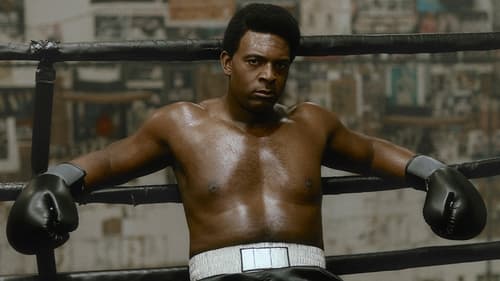
Six-time Grammy Award–winning composer Terence Blanchard brings his first opera to the Met after his Fire Shut Up in My Bones triumphantly premiered with the company to universal acclaim in 2021. Bass-baritone Ryan Speedo Green is the young boxer Emile Griffith, who rises from obscurity to become a world champion, and bass-baritone Eric Owens portrays Griffith’s older self, haunted by the ghosts of his past. Soprano Latonia Moore is Emelda Griffith, the boxer’s estranged mother, and mezzo-soprano Stephanie Blythe is the bar owner Kathy Hagan. Yannick Nézet-Séguin takes the podium for Blanchard’s second Met premiere, also reuniting the director-and-choreographer team of James Robinson and Camille A. Brown.

Philippe II
For the first time in company history, the Met presents the original five-act French version of Verdi’s epic opera of doomed love among royalty, set against the backdrop of the Spanish Inquisition. Patrick Furrer leads a world-beating cast of opera’s leading lights in this March 26 performance, including tenor Matthew Polenzani in the title role, soprano Sonya Yoncheva as Élisabeth de Valois, and mezzo-soprano Elīna Garanča as Eboli. Bass Günther Groissböck and bass-baritone John Relyea are Philippe II and the Grand Inquisitor, and baritone Étienne Dupuis rounds out the all-star principal cast as Rodrigue. Verdi’s masterpiece receives a monumental new staging by David McVicar that marks his 11th Met production, placing him among the most prolific and popular directors in recent Met memory. This live cinema transmission is part of the Met’s award-winning Live in HD series, bringing opera to movie theaters across the globe.

Honor the 20th anniversary of the September 11 attacks with this special performance hosted by Misty Copeland and led by Met Music Director Yannick Nézet-Séguin featuring soloists Ailyn Pérez, Michelle DeYoung, Matthew Polenzani and Eric Owens.

Porgy
장애를 지닌 걸인 포기와 마약에 중독된 베스의 사랑을 그렸다. 포기 역은 에릭 오웬스, 베스 역은 엔젤 블루가 맡았다. 잔인한 폭력배 크라운 역을 알프레드 워커, 마약판매상 스포팅라이프 역을 프레데릭 밸런타인, 어부 제이크 역을 도노반 싱글터리, 그의 아내 클라라 역을 골다 슐츠, 남편을 잃은 강인한 여성 세레나 역을 라토니아 무어, 마리아 역을 데니스 그레이브스가 맡은 이 최고의 캐스팅을 데이비드 로버트슨이 지휘했다. 시대를 초월한 불후의 명곡 ‘서머타임’, ‘베스, 당신은 이제 내 사람’ 등을 들을 수 있는 이 새 프로덕션은 메트, 잉글리시 내셔널 오페라, 더치 내셔널 오페라의 공동제작 프로덕션이다.

Self - Host
약자를 괴롭히는 사악한 사회에 희생당하는 병사 보체크가 주인공인 이 오페라는 알반 베르크가 1차 대전 중에 스스로의 체험을 반영해 작곡한 작품이다. 금방이라도 무너질 듯한 계단, 경사로, 버려진 가구들, 쓰레기 더미로 이루어진 무대에 켄트리지의 트레이드마크인 목탄화 애니메이션, 프로젝션, 영화 클립 등으로 거꾸러진 전투기, 서치라이트, 가스마스크, 전쟁터 등의 이미지를 조합한 연출이 대단히 생생하고 인상적이다. 돈 조반니 역으로 유명한 바리톤 페터 마테이가 보체크 역에 처음으로 도전하며, 엘자 반 덴 히버가 보체크의 아내 마리 역을 열연한다. 보체크를 괴롭히는 군악대장 역은 바그너 전문 테너 크리스토퍼 벤트리스가, 희극적인 연기가 탁월한 테너 게르하르트 지겔이 대위 역, 크리스티안 반 호른이 의사 역을 맡았다. 앤드류 스테이플스는 보체크의 동료 안드레스 역으로 메트에 데뷔한다.

Voice of Neptune / Self - Host
Mozart’s early masterpiece returned to the Met for the first time in more than a decade with Music Director Emeritus James Levine, who led the work’s company premiere in 1982, again on the podium. Tenor Matthew Polenzani brings both steely resolve and compassionate warmth to the title king of Crete, who is faced with an impossible decision. With her rich mezzo-soprano, Alice Coote sings the trouser role of Idomeneo’s son Idamante, who loves the Trojan princess Ilia, sung with delicate lyricism by Nadine Sierra. Elza van den Heever gives a thrillingly unhinged portrayal of the jealous Elettra. Jean Pierre-Ponnelle’s timeless production blends the grandeur of ancient myth with the elegance of Enlightenment ideals.

Vodník (A Gnome)
Kristine Opolais “gives a vocally lustrous and achingly vulnerable performance” (New York Times) in the role that helped launch her international career, the mythical Rusalka, who sings the haunting “Song to the Moon.” Director Mary Zimmerman brings her wondrous theatrical imagination to Dvořák’s fairytale of love and longing, rejection and redemption, giving the work “an inspired staging” (Huffington Post). Brandon Jovanovich, Jamie Barton, Katarina Dalayman, and Eric Owens complete “a matchless cast” (New York Times), and Sir Mark Elder conducts “a magnificent rendering of the composer’s lush score (Huffington Post).
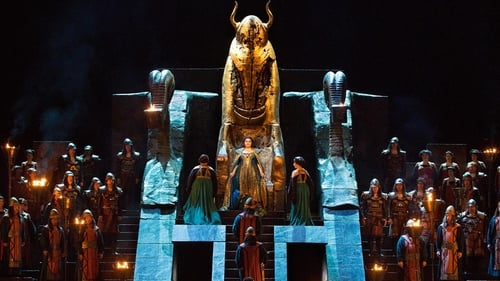
Self - Host
The legendary Plácido Domingo brings another new baritone role to the Met under the baton of his longtime collaborator James Levine. Liudmyla Monastyrska is Abigaille, the warrior woman determined to rule empires, and Jamie Barton is the heroic Fenena. Dmitri Belosselskiy is the stentorian voice of the oppressed Hebrew people.
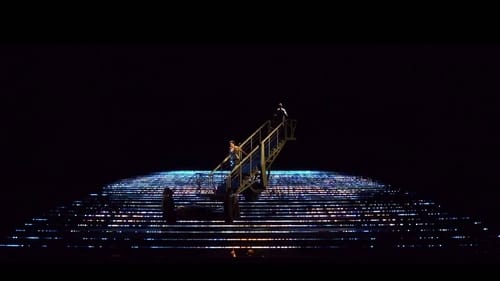
Jaufré Rudel
Robert Lepage’s dreamlike production, with its thousands of twinkling LED lights stretching across the stage to represent the sea, encapsulates the mystic feeling of L’Amour de Loin, Saariaho’s haunting opera of distant love. Eric Owens is Jaufré Rudel, a troubadour in 12th century France who has become tired of his hedonistic life and longs for an idealized love. Enter the Pilgrim (Tamara Mumford) who tells him his perfect love does, in fact, exist, far across the sea. She is Clémence, Countess of Tripoli (Susanna Phillips). The magic of the characters’ inner lives as they explore the meaning of love, longing, life, and death is heightened by Saariaho’s hypnotic and bewitching score, conducted by Susanna Mälkki.

Orestes
The great singing actress Nina Stemme gives a heart-wrenching performance in the title role of Strauss’s blazing one-act drama, adapted from the ancient Greek myth. Patrice Chéreau’s acclaimed production—the last staging he worked on before his death in 2013—also stars Waltraud Meier as Klytämnestra, Elektra’s nightmare-haunted mother, Adrianne Pieczonka as Chrysothemis, her sister, and Eric Owens as Orest, their brother, whose return home brings their family story to a terrifying climax. Esa-Pekka Salonen conducts the monumental and highly influential score.
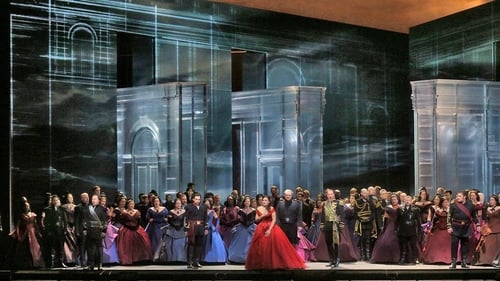
Self - Host
Tony Award winner Bartlett Sher’s bold new production probes the psychological underpinnings of Verdi’s dynamic setting of Shakespeare’s great tragedy. At the helm of this performance is riveting conductor Yannick Nézet-Séguin, who brings out all the cascading emotions in Verdi’s turbulent score. Aleksandrs Antonenko is the Moor Otello, the triumphant general of the Venetian army who is ultimately brought down by the sly insinuations of his friend Iago (Željko Lučić). Sonya Yoncheva continues to win fans as Desdemona, Otello’s faithful and long-suffering wife. With Günther Groissböck as Lodovico and Dimitri Pittas as Cassio.
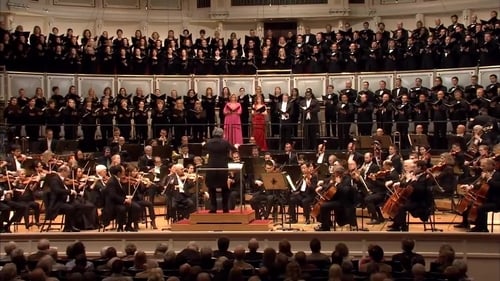
Bass-Baritone
Experience what Zell Music Director Riccardo Muti calls “the work of a divine architect” in this special encore presentation of Beethoven’s Ninth Symphony. Recorded live September 18, 2014, at Orchestra Hall during one of the opening programs of the Chicago Symphony Orchestra’s 2014/15 season, this performance features Muti leading the Orchestra and Chorus and distinguished soloists in one of history’s most powerful and inspiring artistic works. A masterpiece whose staggering influence can be seen across classical music, it concludes with the famous Ode to Joy, which calls for understanding, peace and universal goodwill. The Chicago Symphony Orchestra is grateful to an anonymous donor for generously underwriting the recording of this concert in 2014.

Capellio
Bellini's radiant retelling of Shakespeare's Romeo and Juliet is a beacon in the bel canto tradition. San Francisco Opera's co-production features two of the greatest voices in bel canto together for the first time: mezzo Joyce DiDonato and soprano Nicole Cabell. Their compelling duet is one of the finest marriages between two voices in many, many years. The production, directed by Vincent Broussard and featuring costumes by Christian Lecroix, is captured in brilliant HD.

Self - Host
Live performance from the Metropolitan Opera, March 1, 2014. Absent from the Met stage since 1917, Borodin’s masterwork about an introspective prince’s military campaign against the invading Polovtsians returned in 2014 with a first-rate cast and an astonishing production by Dmitri Tcherniakov. Well worth the wait, the sets feature visually striking projections interlaced with lush flowering fields, and the first act delivers one of opera’s most exciting dance medleys, a portion of which went mainstream in the 1950s when Tony Bennett recorded “Stranger in Paradise.”

Alberich
In the depths of the Rhine, the three Rhinemaidens guard the Rhinegold, a treasure of immeasurable value. The Nibelung dwarf Alberich is dazzled by the sight of it. The girls explain that whoever wins the gold and forges it into a ring will gain power over the world, but must first renounce love. Frustrated by his unsuccessful attempts to catch one of the girls, Alberich curses love and steals the gold. Wotan, lord of the gods, is reproached by his wife Fricka: he has promised to give Freia, goddess of youth, to the giants Fasolt and Fafner in return for their building a fortress for the gods. When the giants demand their reward, Loge, the god of fire, suggests an alternative payment: the ring Alberich has forged from the Rhinegold, and his other treasures. The giants agree, and Wotan and Loge leave for the Nibelungs’ underground home.

Alberich
The third of the four music dramas in Richard Wagner's Der Ring des Nibelungen. The dwarf Mime, who has brought up Siegfried, makes a sword for him, so that he may kill the dragon Fafner and regain the ring, which Mime then plots to recapture. Siegfried learns he is the son of Sieglinde, who died when he was born. Siegfried melts the pieces of the legendary sword Nothung and repairs it. Alberich and Wotan seek to warn the dragon in return for the treasure, but fail. Siegfried is led by Mime to the cave, where he kills the dragon. A forest bird tells Siegfried to beware Mime. Understanding Mime’s murderous thoughts, Siegfried kills him. The bird also sings of the sleeping Brünnhilde. Wotan understands that Siegfried must wake Brünnhilde, who will save the world. Siegfried meets the Wanderer, Wotan, and with his sword breaks the latter's spear and power. He wakens the Brünnhilde, who gives up Valhalla and the gods for the love of the mortal hero, her love putting an end to her knowledge.

Alberich
Ring Cycle, pt 4. Siegfried is drugged and tricked into kidnapping his wife, since she has the Ring now. More double-crossings, Siegfried ends up dead. Brunnhilde has had enough of this, tosses the Ring into the river and torches the place.

Self - Host
Following the success of his first foray into opera, Einstein on the Beach, revolutionary American composer and musician Philip Glass soon turned to another great figure of the 20th century for inspiration. Set to lines from the Hindu Bhagavad Gita, Satyagraha depicts scenes from the life of Gandhi as he developed his philosophy of non-violent resistance in South Africa between 1896 and 1913. The opera became the second installment of Glass’s Portrait Trilogy, focused on innovators from across history. Satyagraha arrived at the Met during the 2007–08 season, when director Phelim McDermott made his debut with a production that employed everyday materials like newspaper and corrugated tin to create towering puppets and striking tableaus. In 2011, his staging returned, this time recorded live in HD. In this performance, tenor Richard Croft gives a moving performance as Gandhi, leading a remarkable ensemble cast conducted by Dante Anzolini.

Alberich
Robert Lepage’s remarkable Met Opera production of Wagner’s Der Ring des Nibelungen, the 2013 Grammy Award Winner for Best Opera Recording, is now available as individual DVDs. Siegfried features Bryn Terfel, Jay Hunter Morris, and Deborah Voigt, with Fabio Luisi conducting.
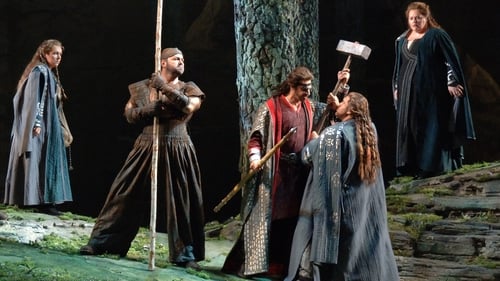
Alberich
Robert Lepage’s landmark staging of Wagner’s Der Ring des Nibelungen, unveiled over the course of the 2010–11 and 2011–12 seasons, was the first new Met production of the complete cycle in more than 20 years. Combining state-of-the-art technology with traditional storytelling, it brings Wagner’s vision into the 21st century. In this first part of the epic, the theft of the Rhinegold treasure sets in motion the course of events that will change the world and end the rule of the gods. Met Music Director James Levine conducts a cast of some of the greatest Wagnerian singers of our time, including Bryn Terfel as Wotan, Stephanie Blythe as Fricka, and Eric Owens as Alberich.
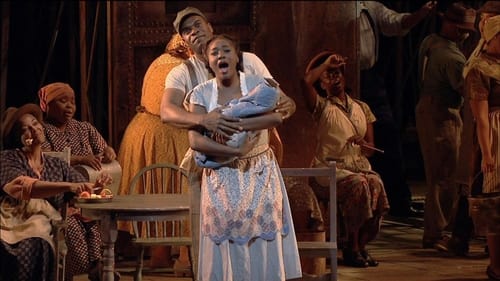
Porgy
George Gershwin miraculously melded classical idioms, jazz, blues, and spirituals in this quintessentially American masterpiece about a crippled beggar, the headstrong woman he loves, and the community that sustains them both; presented here in an acclaimed productions from San Francisco Opera
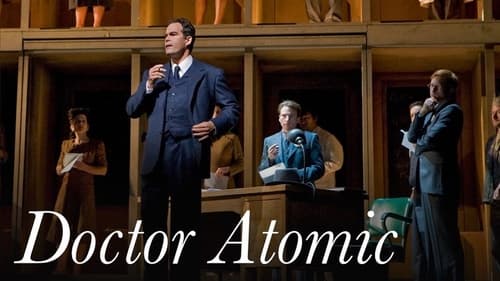
General Leslie Groves
John Adams’s mesmerizing score, in the powerful production of Penny Woolcock, tells the story of one of the pivotal moments in human history—the creation of the atomic bomb. Conducted by Alan Gilbert in his Met debut, this gripping opera presents the human face of the scientists, military men, and others who were involved in the project, as they wrestled with the implications of their work. Baritone Gerald Finley gives a powerful star turn in the title role as the brilliant J. Robert Oppenheimer.

Gen. Leslie Groves
The European premiere of the opera by the contemporary American composer John Adams, with libretto by Peter Sellars, in a co-production of the San Francisco Opera (where the work premiered), the Lyric Opera of Chicago, and De Nederlandse Opera. The plot focuses on the great stress and anxiety experienced by those at Los Alamos while the test of the first atomic bomb (the "Trinity" test) was being prepared.






















